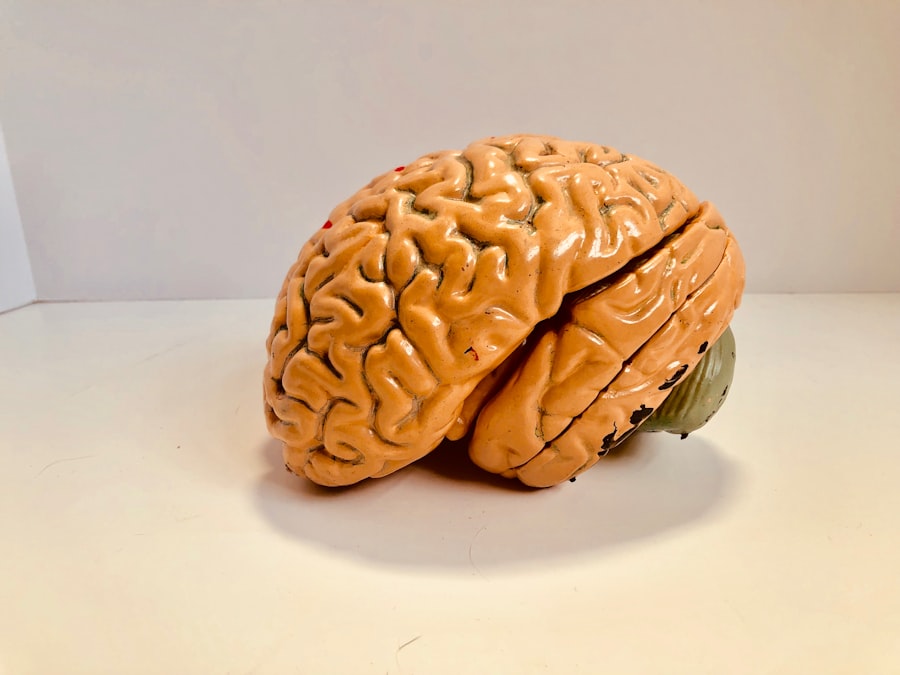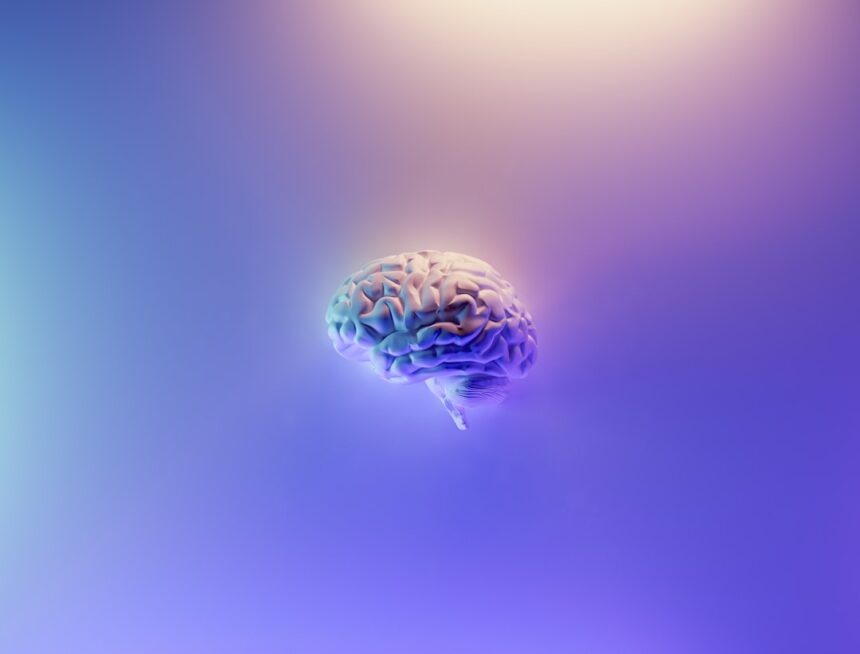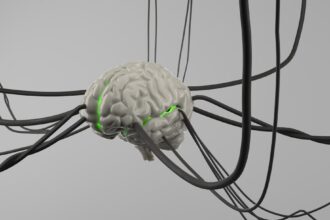Emotions are complex responses that involve both physiological and psychological components. They play a crucial role in how you interact with the world around you, influencing your thoughts, behaviors, and overall well-being. At their core, emotions are your brain’s way of processing experiences, helping you navigate social interactions and make decisions.
Understanding how emotions work in the brain can provide you with valuable insights into your own emotional responses and those of others. The brain is a highly intricate organ, and its various regions work together to create the rich tapestry of human emotion. When you experience an emotion, multiple areas of your brain are activated, including those responsible for memory, decision-making, and social behavior.
This interconnectedness highlights the importance of understanding emotions not just as isolated experiences but as part of a broader neural network that shapes your daily life.
Key Takeaways
- Emotions are processed in the brain and play a crucial role in our daily lives.
- The amygdala is responsible for processing and regulating emotions, particularly fear and aggression.
- The prefrontal cortex plays a key role in regulating and controlling emotions.
- Neurotransmitters such as serotonin and dopamine play a crucial role in emotion regulation.
- Stress can have a significant impact on emotion regulation and mental health.
The Role of the Amygdala in Emotion Processing
The amygdala is a small, almond-shaped structure located deep within your brain’s temporal lobe, and it plays a pivotal role in emotion processing. When you encounter a stimulus that elicits an emotional response—be it fear, joy, or sadness—the amygdala is one of the first areas to activate. It acts as an emotional alarm system, quickly assessing threats and triggering appropriate responses.
This rapid processing is essential for survival, allowing you to react swiftly to potential dangers. However, the amygdala’s influence extends beyond just fear responses. It is also involved in the processing of positive emotions, such as happiness and excitement.
The amygdala helps you form emotional memories, which can influence your future behavior and decision-making. Understanding the dual role of the amygdala in both negative and positive emotions can help you appreciate the complexity of your emotional landscape.
The Prefrontal Cortex and Emotion Regulation

While the amygdala is crucial for emotion processing, the prefrontal cortex serves as a key player in emotion regulation. This area of your brain is responsible for higher-order cognitive functions such as reasoning, planning, and decision-making. When you experience strong emotions, the prefrontal cortex helps you assess the situation and decide how to respond appropriately.
It acts as a counterbalance to the amygdala’s immediate reactions, allowing for more thoughtful responses rather than impulsive ones. The relationship between the prefrontal cortex and the amygdala is essential for maintaining emotional balance. When you are able to engage your prefrontal cortex effectively, you can manage your emotional responses more successfully.
This ability to regulate emotions is vital for maintaining healthy relationships and achieving personal goals. By understanding this dynamic interplay between these two brain regions, you can work towards enhancing your emotional regulation skills.
Neurotransmitters and Emotion Regulation
| Neurotransmitter | Function | Emotion Regulation |
|---|---|---|
| Serotonin | Regulates mood, appetite, and sleep | Linked to feelings of happiness and well-being |
| Dopamine | Involved in reward-motivated behavior | Plays a role in pleasure, motivation, and emotional arousal |
| Norepinephrine | Regulates arousal and attention | Can impact mood and stress response |
| GABA (Gamma-aminobutyric acid) | Inhibits brain activity | Helps reduce anxiety and promote relaxation |
Neurotransmitters are chemical messengers that play a significant role in regulating emotions within your brain. They facilitate communication between neurons and influence various aspects of mood and behavior. Key neurotransmitters involved in emotion regulation include serotonin, dopamine, norepinephrine, and gamma-aminobutyric acid (GABA).
Each of these chemicals has distinct effects on your emotional state and overall mental health. For instance, serotonin is often referred to as the “feel-good” neurotransmitter because it contributes to feelings of happiness and well-being. Low levels of serotonin have been linked to mood disorders such as depression and anxiety.
On the other hand, dopamine is associated with reward and pleasure; it motivates you to engage in activities that bring joy. Understanding how these neurotransmitters function can empower you to make lifestyle choices that promote emotional well-being.
The Impact of Stress on Emotion Regulation
Stress can have a profound impact on your ability to regulate emotions effectively. When you experience stress, your body releases hormones such as cortisol, which can alter brain function and affect your emotional responses. High levels of stress can lead to heightened reactivity in the amygdala, making it more challenging for your prefrontal cortex to exert control over your emotions.
This imbalance can result in impulsive reactions and difficulty managing feelings. Moreover, chronic stress can lead to long-term changes in brain structure and function, further complicating emotion regulation. You may find yourself feeling overwhelmed or unable to cope with everyday challenges when under constant stress.
Recognizing the effects of stress on your emotional health is crucial for developing strategies to mitigate its impact and enhance your ability to regulate emotions effectively.
Neuroplasticity and Emotion Regulation

Neuroplasticity refers to the brain’s remarkable ability to adapt and change throughout your life. This adaptability means that even if you struggle with emotion regulation now, there is potential for improvement through practice and experience. Engaging in activities that promote neuroplasticity—such as mindfulness meditation, cognitive-behavioral therapy (CBT), or learning new skills—can help reshape neural pathways associated with emotional responses.
By actively working on your emotional regulation skills, you can strengthen connections between the prefrontal cortex and the amygdala, leading to more effective management of your emotions over time. This process not only enhances your ability to cope with stress but also fosters resilience against future emotional challenges. Embracing neuroplasticity empowers you to take control of your emotional health and cultivate a more balanced emotional life.
The Influence of Genetics on Emotion Regulation
Genetics also plays a significant role in shaping your ability to regulate emotions. Research has shown that certain genetic factors can influence neurotransmitter systems and brain structures involved in emotion processing. For example, variations in genes related to serotonin transport can affect how well you respond to stress and manage emotions.
Understanding these genetic influences can provide insight into why some individuals may find it easier or more challenging to regulate their emotions. However, it’s essential to recognize that genetics is just one piece of the puzzle. Environmental factors, life experiences, and personal choices also contribute significantly to your emotional regulation abilities.
By acknowledging both genetic predispositions and external influences, you can develop a more comprehensive understanding of your emotional landscape and work towards improving your regulation skills.
The Development of Emotion Regulation in Childhood
The foundation for emotion regulation is often laid during childhood. As you grow up, you learn how to express and manage emotions through interactions with caregivers and peers. Early experiences play a crucial role in shaping your emotional responses; supportive environments foster healthy emotional development while adverse experiences can lead to difficulties in regulation later in life.
When they demonstrate healthy coping strategies and validate your feelings, they equip you with essential tools for managing emotions effectively. Conversely, inconsistent or negative responses can hinder your ability to develop these skills.
Understanding the importance of early emotional experiences can help you reflect on your own upbringing and its impact on your current emotional regulation abilities.
The Connection Between Emotion Regulation and Mental Health
Emotion regulation is closely linked to mental health outcomes. Individuals who struggle with regulating their emotions are at a higher risk for developing mental health disorders such as anxiety, depression, and borderline personality disorder.
By improving your ability to regulate emotions, you can enhance your resilience against mental health challenges. Developing healthy coping mechanisms allows you to navigate life’s ups and downs more effectively, reducing the likelihood of experiencing overwhelming negative emotions. Recognizing this connection empowers you to prioritize emotional regulation as a vital aspect of maintaining mental health.
Techniques for Improving Emotion Regulation
There are numerous techniques you can employ to enhance your emotion regulation skills. Mindfulness practices, such as meditation or deep breathing exercises, can help you become more aware of your emotional states and develop greater control over them. By practicing mindfulness regularly, you can learn to observe your thoughts and feelings without judgment, allowing for more thoughtful responses rather than impulsive reactions.
Cognitive-behavioral strategies are also effective for improving emotion regulation. By identifying negative thought patterns and challenging them with more balanced perspectives, you can change how you feel about certain situations. Journaling about your emotions can provide additional clarity and insight into your feelings, helping you process them more effectively.
Experimenting with different techniques will enable you to find what works best for you in enhancing your emotional regulation skills.
The Future of Emotion Regulation Research
As our understanding of the brain continues to evolve, so too does research on emotion regulation. Future studies are likely to explore the intricate relationships between genetics, environment, neurobiology, and emotional health in greater depth. Advances in neuroimaging technology may allow researchers to observe real-time changes in brain activity during emotional processing and regulation.
Additionally, there is growing interest in developing personalized interventions based on individual differences in genetics and brain function. By tailoring approaches to suit specific needs, researchers hope to create more effective strategies for improving emotion regulation across diverse populations. As this field progresses, it holds promise for enhancing mental health outcomes and fostering resilience in individuals facing emotional challenges.
In conclusion, understanding emotion regulation involves exploring various aspects of neuroscience, psychology, genetics, and personal development. By gaining insights into how emotions are processed in the brain and recognizing the factors that influence regulation abilities, you can take proactive steps toward improving your emotional health. Embracing techniques for enhancing emotion regulation not only benefits you personally but also contributes positively to your relationships and overall quality of life.
In recent years, the neuroscience of emotional regulation has garnered significant attention, as researchers strive to understand the intricate processes that govern our emotional responses. A fascinating article on this topic can be found on Unplugged Psych, which delves into the neural mechanisms that underpin our ability to manage emotions effectively. This piece explores how different brain regions interact to facilitate emotional regulation and the implications for mental health treatment. For a deeper insight into this subject, you can read the full article by visiting Unplugged Psych.
🧠 Your Trauma Is Rewiring Your Brain: Here’s How to Undo It | A Neuroplasticity & Somatic Guide
FAQs
What is emotional regulation?
Emotional regulation refers to the ability to effectively manage and respond to an emotional experience. It involves the processes of recognizing, understanding, and modulating one’s own emotions in order to achieve a desired emotional state.
What is the neuroscience of emotional regulation?
The neuroscience of emotional regulation involves studying the brain mechanisms and processes that underlie the regulation of emotions. This includes understanding how different brain regions and neural circuits are involved in the recognition, processing, and modulation of emotions.
What brain regions are involved in emotional regulation?
Several brain regions are involved in emotional regulation, including the prefrontal cortex, amygdala, hippocampus, and insula. These regions play a role in the cognitive control, appraisal, and modulation of emotional responses.
How does the brain regulate emotions?
The brain regulates emotions through a complex interplay of neural circuits and neurotransmitter systems. This involves processes such as cognitive reappraisal, attentional control, and emotional expression, which are mediated by the activity of various brain regions.
What are the implications of understanding the neuroscience of emotional regulation?
Understanding the neuroscience of emotional regulation has implications for mental health, as it can inform the development of interventions and treatments for emotional disorders such as anxiety, depression, and post-traumatic stress disorder. It also has implications for improving emotional well-being and resilience.




